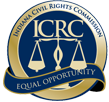INDIANAPOLIS – The Indiana Civil Rights Commission’s (ICRC) Deputy Director Akia Haynes announced today that there is probable cause to believe that a former employee of Fountainview Golden Living Center in Mishawaka, Ind. faced an adverse employment action when she was not offered a light duty or restricted job assignment, in contravention of Respondent’s policy, and forced to go on Family Medical Leave (FML) during her pregnancy.
At all times relevant to the Complaint, the Complainant worked as a Certified Nursing Assistant (CNA). On or about December 18, 2012, Complainant provided Respondent with a doctor’s note indicating that she had a 20 pound temporary weight restriction. Despite this note, the Complainant’s supervisor advised the Complainant that there was no light duty work available because of the nature of her job duties, specifically, engaging in the lifting of patients.
Ultimately, Respondent placed Complainant on FML until she received a full duty release on or about December 31, 2012. While the Complainant was not laid off, Respondent had an obligation to treat her as it would any other disabled employee under the Pregnancy Discrimination Act. In this instance, Respondent’s policy clearly provides a class of employees with light duty or restricted positions.
Since the Complainant was denied a light duty or restricted position, and placed on FML, there is probable cause to believe that an unlawful discriminatory practice occurred in this instance. In order to prevail, Complainant must show that:(1) she is a member of a protected class; (2) she suffered an adverse employment action; (3) she was meeting Respondent’s legitimate business expectations; and (4) similarly-situated individuals who were not pregnant or not perceived to be disabled were treated more favorably under similar circumstances.
A finding of probable cause does not resolve a Civil Rights Complaint. Rather, it means the State has concluded its preliminary investigation and determined there is sufficient evidence to support reasonable suspicion that the Indiana Civil Rights Law has been violated. Indiana Civil Rights Law provides remedies, including compensatory damages and injunctive relief, such as changes in the employer’s policies and training.
The Indiana Civil Rights Commission enforces the Indiana civil rights laws and provides education and services to the public in an effort to ensure equal opportunity for all Hoosiers and visitors to the State of Indiana. For more information, contact Brad Meadows, ICRC Deputy Director – External Affairs, at (317) 232-2651.
